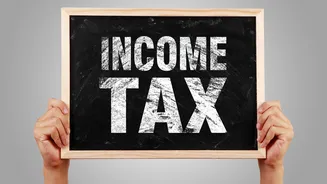Credit Score Influence
A solid credit score is the cornerstone of favorable interest rates. Lenders view individuals with high credit scores as less risky, offering them lower
interest rates. Conversely, a lower credit score can result in higher interest rates, or even loan denial. Your credit history is a direct reflection of your financial responsibility. This includes how well you manage credit card payments, and whether you have a history of defaulting on loans. A good credit score signals reliability, and often unlocks more attractive loan terms.
Income and Employment
Your income level and employment stability are also major considerations. Lenders prefer borrowers with a steady income and consistent employment, indicating a greater ability to repay the loan. A regular job, and a history of employment, often translates into lower interest rates. On the other hand, borrowers with unstable employment histories or irregular income streams may face higher interest rates. Lenders are trying to assess the likelihood of loan repayment, and income is a primary factor.
Loan Amount and Terms
The amount you borrow and the repayment period also play a role in determining the interest rate. Generally, larger loan amounts can sometimes come with lower interest rates, although this isn't always the case. Shorter repayment terms usually mean lower interest rates because the lender faces less risk over a shorter period. Conversely, longer repayment terms might result in higher interest rates, although they can also make monthly payments more manageable.
Overall Debt Burden
Your existing debt-to-income ratio (DTI) is another critical factor. Lenders assess your DTI to evaluate your ability to manage additional debt. If you already have a high level of debt compared to your income, lenders may view you as a higher risk. This can result in less favorable interest rates or even loan rejection. A lower DTI signals that you have sufficient financial capacity to handle another loan without straining your budget. Maintaining a healthy balance between debt and income is vital.
Market Conditions Impact
External market conditions and the prevailing interest rate environment also affect personal loan rates. Changes in the Reserve Bank of India's (RBI) benchmark rates, inflation, and overall economic outlook influence the rates offered by lenders. During periods of economic uncertainty or rising interest rates, lenders may increase their rates to mitigate risk. Conversely, when the economy is stable and interest rates are falling, you might find more competitive offers.














